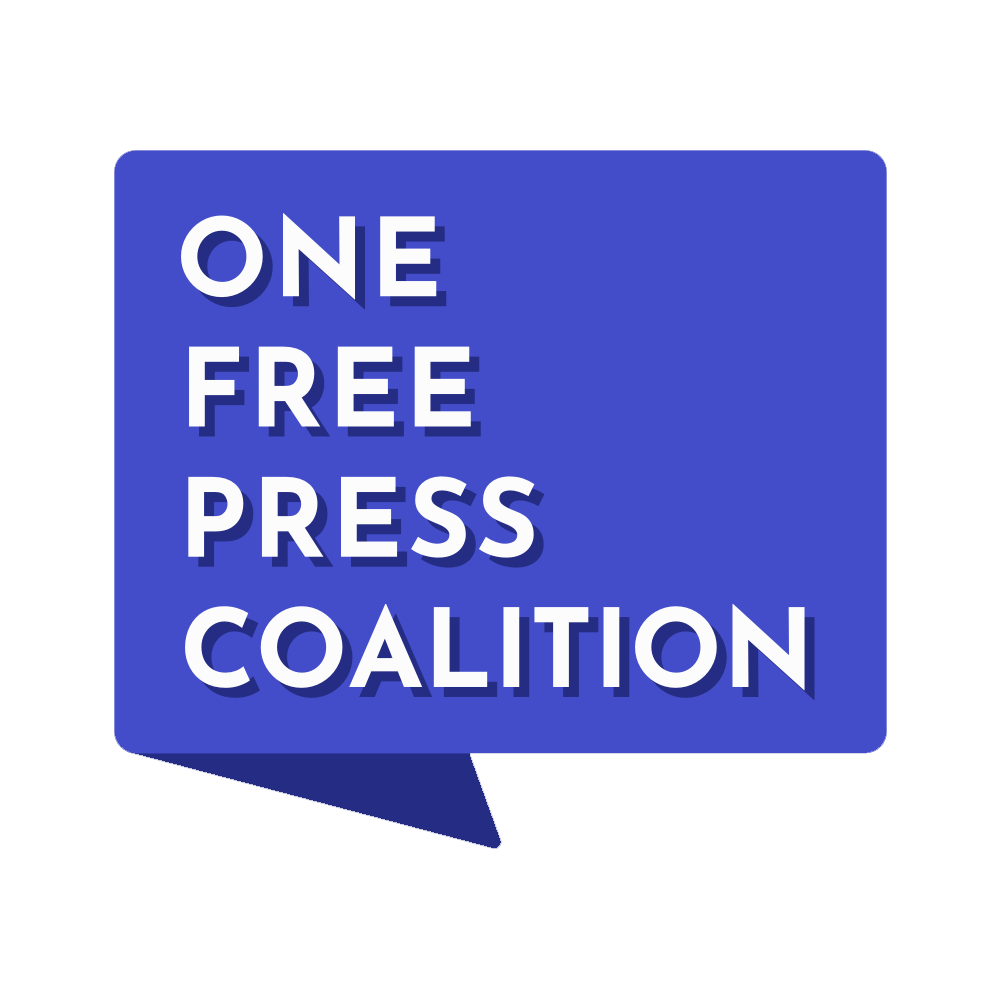On December 2, 2019 the Coalition launched the tenth monthly "10 Most Urgent" list (ranked in order of urgency), calling attention to the most pressing cases of journalists under attack for pursuing the truth.
1. Sophia Xueqin Huang (China)
Sophia Xueqin Huang (Credit IWMF)
Reporter covering Hong Kong protests detained for vague crime. China is the second-leading country for imprisoned journalists, according to CPJ. One among them is Sophia Xueqin Huang, a journalist who was detained in Guangzhou in October on charges of “picking quarrels and provoking trouble” after covering the extended and ongoing unrest in Hong Kong this year and has recently been moved to residential surveillance. The former Xinquaibao and Southern Metropolis Weekly investigative reporter was moved to residential surveillance in November.
2. Jamal Khashoggi (Saudi Arabia)
Corporate voices meet government silence on journalist’s brazen killing. At least six corporate heads, including that of JPMorgan Chase and Google Cloud, decried Saudi Arabia this year, and Amazon’s CEO appeared at a memorial service marking one year since the death of Jamal Khashoggi inside the Kingdom’s Istanbul consulate. All of this comes as the White House has skirted the subject and repeated pressure to launch an independent criminal investigation into the Saudi crown prince’s alleged involvement in the brazen killing of the Washington Post columnist.
3. Luis Carlos Díaz (Venezuela)
Authorities ignore deadline for dropping journalist’s charges. After Luis Carlos Díaz was detained for more than 24 hours in March, Venezuelan prosecutors needed to present evidence supporting charges of “public instigation” by November 12 or the case against Díaz could be closed. The decision is still pending, leaving the dual Spanish citizen and Unión Radio News reporter prohibited from leaving the country or speaking publicly about his detention and expected to report to intelligence agents every week. In addition to arrest, officials raided his apartment, confiscating or stealing money, computers, phones and personal items.
4. Svetlana Prokopyeva (Russia)
Repeated threats and measures to silence Russian reporter. The past year has brought continued attacks against Pskov-based stringer Svetlana Prokopyeva, a freelance contributor for Radio Free Europe/Radio Liberty who reported a story about a young man who detonated a bomb inside a government building. Prokopyeva was accused of “publicly inciting terrorism,” was placed on a list of “terrorists and extremists” and endured a raid of her home, seizure of possessions and her passport and freezing of bank accounts. She is facing up to seven years in jail on terrorism-related charges. Reporters covering her case are now being harassed too.
Qazi Shibli (Credit Qazi Umair)
5. Qazi Shibli (India)
Health concerns for imprisoned Kashmiri editor. The family of Qazi Shibli has expressed concerns that The Kashmiriyat news website editor has grown weak since his July detainment. As Kashmir autonomy lessened and Shibli reported on increased troop deployments into the region, he has been held on charges including “waging war against the Union of India,” “creating fear and panic among common people” and being “deeply involved in disrupting the peaceful atmosphere.” He is now imprisoned out of state more than 600 miles away, and the family has hired a lawyer to help file a petition for bail.
6. Hamid al-Mahdaoui (Morocco)
Mistreatment for journalist imprisoned on baseless charges. An editor and reporter for Moroccan online news outlet Badil, Hamid al-Mahdaoui has served half of a three-year sentence for “failure to denounce a crime threatening national security” while traveling to cover anti-corruption protests in 2017. His lawyer calls the charge baseless, stemming from an unsolicited call received from someone claiming to be smuggling weapons. The sentence was upheld this year, and al-Mahdaoui has gone on hunger strike and been denied medicine, nutritious food and access to a doctor.
7. Sofiane Merakchi (Algeria)
Hearing postponed for correspondent in pre-trial detention. Since February, Algerian authorities have expelled or suspended journalists covering protests. Sofiane Merakchi, a freelance correspondent for Beirut-based TV channel Al Mayadeen and other foreign news agencies, was arrested in September at his personal office in Algiers, and his November 15 hearing for charges of “evading customs and tax” was postponed.
8. Azimjon Askarov (Kyrgyzstan)
Deteriorating health for Kyrgyz journalist serving life sentence. Award-winning journalist Azimjon Askarov has spent nine years in prison on trumped-up charges for reporting on human rights violations. Letters home have described run ins with guards, detainee punishment after visiting days, Askarov’s deteriorating health and limited access to medication. Despite persistent international condemnation, a Kyrgyz court ruled to uphold his life sentence in July.
9. Esraa Abdel Fattah (Egypt)
Journalist accused of lying about abusive imprisonment. At least seven journalists have been arrested in Egypt since anti-government protests began in September, including Esraa Abdel Fattah, a reporter and social media coordinator focused on human rights violations for banned website Tahrir News. She was charged with spreading false news, membership in a banned group and abuse of social media networks (all which she denies) and jailed pending investigation. Two pro-government outlets accused her of lying about officials beating, hanging and choking her.
10. Azory Gwanda (Tanzania)
No answers or credible investigation in case of missing Tanzanian journalist. More than two years ago, freelance journalist Azory Gwanda went missing in Tanzania after investigating rural mysterious killings. The government has failed to conduct an investigation or disclose any knowledge of his whereabouts. In July, Foreign Minister Palamagamba Kabudi said in an interview that Gwanda had “disappeared and died” but backtracked amid requests for clarification.
The Committee to Protect Journalists maintains safety guidelines for reporting on civil disorder: English, Français, Español, Русский, Português, 中文, and Farsi.
